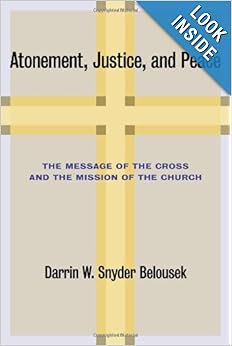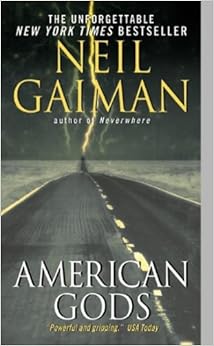What is justice? This
is the question that many are asking in regards to yesterday’s grand jury
decision to not indict officer Darren Wilson for the killing of Michael Brown. For some, Officer Wilson’s actions were just
because he was executing his legal right as an officer of the law to defend his
life against an aggressor. For others,
the decision to not bring Officer Wilson to trial is an injustice because he
caused the death of an unarmed civilian and should, at the very least, have to
answer for this. For many, this is only
another example of racial bias in regards to the law and further promotes the
idea that Police Officers, especially white ones, live above the law.
The challenges faced in fully understanding this situation
involve a lack of hard evidence, conflicting witness testimonies, media bias
and interference, and a high degree of emotionalism for people on all sides of
the issue.
Beyond that, we are working with an imperfect justice system
(broken) in a fractured government in which race and politics colors the way
that we receive and interpret information.
And culturally, there is still a racial divide in our nation, both
explicit and implicit, which unfortunately spins our thoughts, actions and
reactions to this controversy.
So again I ask, what is justice? What is justice to Michael Brown and his
family? What is justice for Darren
Wilson? What does justice mean to the
community of Ferguson? What is justice
for the minority population in the United States?
One of the wonderful surprises that we find is that in
contrast to our society, which favors the powerful over the weak, Godly
justice, according to Scripture, is defending those without power from the
oppression of the powerful. It is a
dramatic reversal from the norm of our society which tends to give the most
favor to those who pull the most strings while robbing any favor from those who
are in the most need. Yet over and over
again, Scripture attests to God’s desire that His followers seek justice for
the oppressed.
Isaiah 1:17
Learn to do right; seek
justice.
Defend the oppressed.
Take up the cause of the fatherless;
plead the case of the widow.
Defend the oppressed.
Take up the cause of the fatherless;
plead the case of the widow.
Jeremiah 22:3
3 This is what the Lord says: Do
what is just and right. Rescue from the hand of the oppressor the one
who has been robbed. Do no wrong or violence to the foreigner, the fatherless
or the widow, and do not shed innocent blood in this place.
Micah 6:8
He has shown you, O
mortal, what is good.
And what does the Lord require of you?
To act justly and to love mercy
and to walk humbly with your God.
And what does the Lord require of you?
To act justly and to love mercy
and to walk humbly with your God.
Our nation measures justice according to the laws of the
land, which allow for a person of power to make the discretionary decision as
to whether or not someone can live or die.
And we cannot avoid the reality that those discretionary decisions are
influenced by one’s position and privilege.
Nor can we deny that historically, the powerful (often white males) have
been given preferential treatment over and against minorities in the eyes of
the law (which is supposedly blind). And
finally, we have to reconcile the fact that, no matter the circumstances, an
armed police officer charged with protecting citizens shot and killed an
unarmed man. Legally, it was decided
that he had the right to do so. But does
that mean that Michael Brown did not have the right to live? And are we now in a state where enforcers can
act as judge, jury and executioner without any form of punitive action being
brought against them (as long as they testify their lives were being
threatened)?
So once again, it would appear to many that the powerful
triumphed over the weak, which is ultimately the inciting reason behind the
cries of “injustice!” It would seem that
this could be a continuation of racial subjugation which has plagued our nation
since its inception.
The question remains, what is justice in the eyes of
God? All of humankind has been created
in the image of God and therefore have divine worth, regardless of age, gender,
ethnicity and the like. And Paul tells
us that in the Kingdom of God, the distinctions which divide us no longer
exist. Therefore, it is unjust to give
preferential treatment to a person or people group based on race, title or
position.
Additionally, we will all have to make account for our
actions in this life, whether or not they are legally justified. Officer Wilson will have to deal with the
fact that he killed another human being, and only he knows his true
motives. Any murder or killing is an
unnecessary tragedy in the eyes of God, who is actively working at reconciling the
entire world to himself.
Justice, in the eyes of God, is the Church, His physical
representative here on earth, standing up for the rights of those whose rights
have been taken away. Michael Brown’s
right to a trial for the robbery and (potential) harassment/assault of an
officer of the law were taken away.
Maybe he gave his rights away through aggression; in any case, he did
not receive due process. The black community’s right to receive fair
treatment from the legal system in Missouri was, as perceived by many, taken
away. And whether or not this is
completely true is not the point; the point is that once again the weak were
made powerless, and serious reparations are in order.
So where do we go from here, as a church? First, we need to stop the violence we are
doing to one another. Not only was
violence done in the incident, but violence occurred by protesters and the government’s
reactions to the protesters. Also, many
are doing violence to each other in their discussions, as well as violence to
the life of Michael Brown, to his family, to the African-American community, and
to Officer Wilson in the words being said and typed. Violence takes many forms, but violence will
never ultimately stop violence. The only
thing that can overcome violence is love.
Secondly, we need to educate ourselves on the realities of
oppression in America. We need to stop
infusing our faith with our politics and rather see people through the eyes of
God. Whether they are undocumented
immigrants, Muslims, politicians, or black, God sees all people as his unique
and important creation. Imagine how our
culture would look if we stopped viewing others as “problems” and instead
viewed them as irreplaceable.







